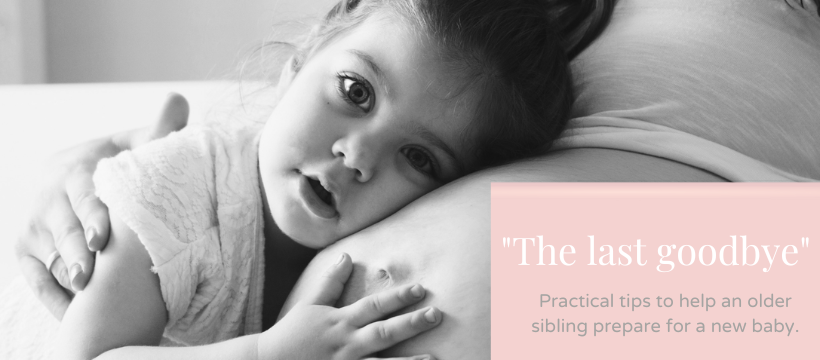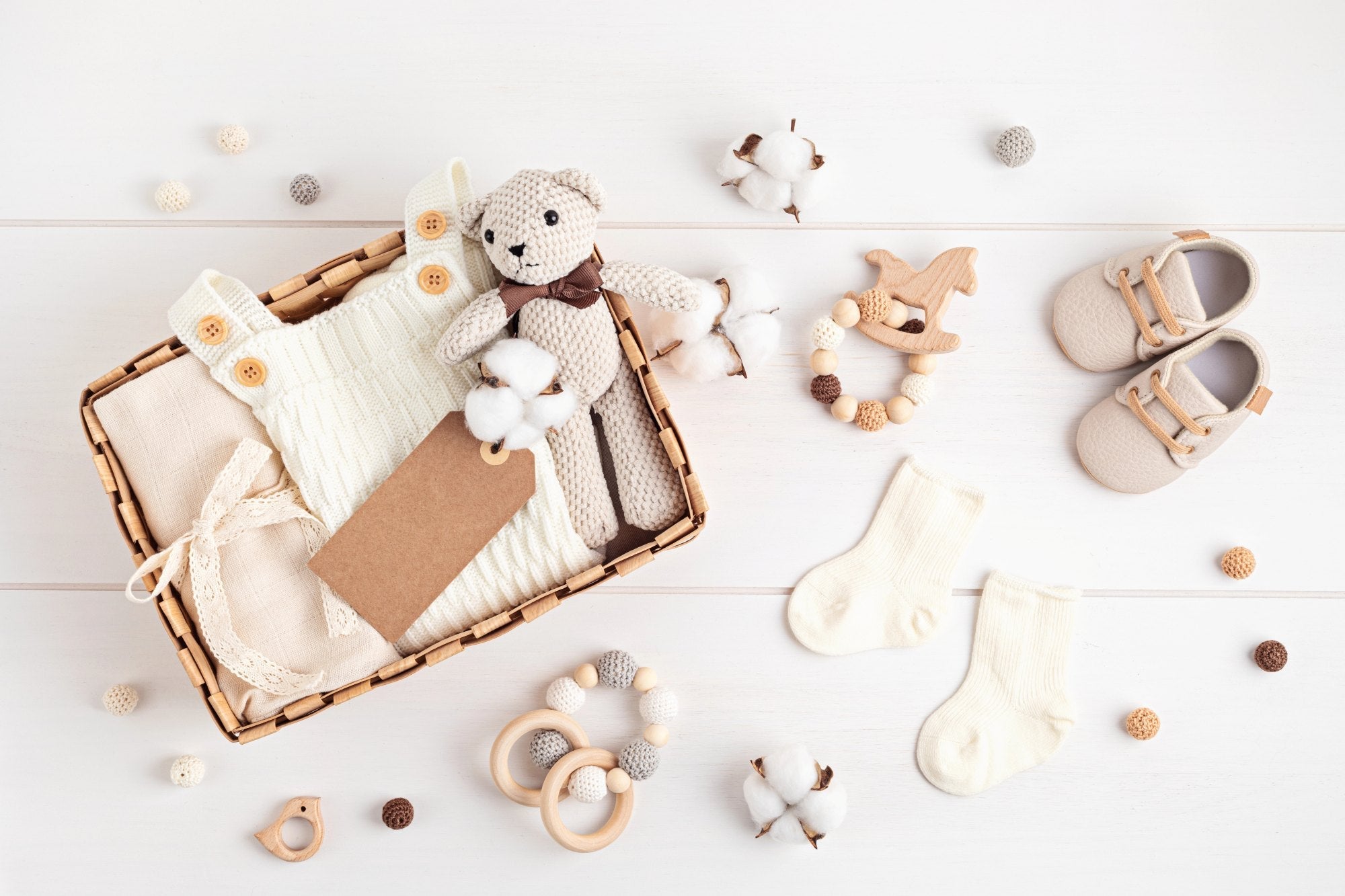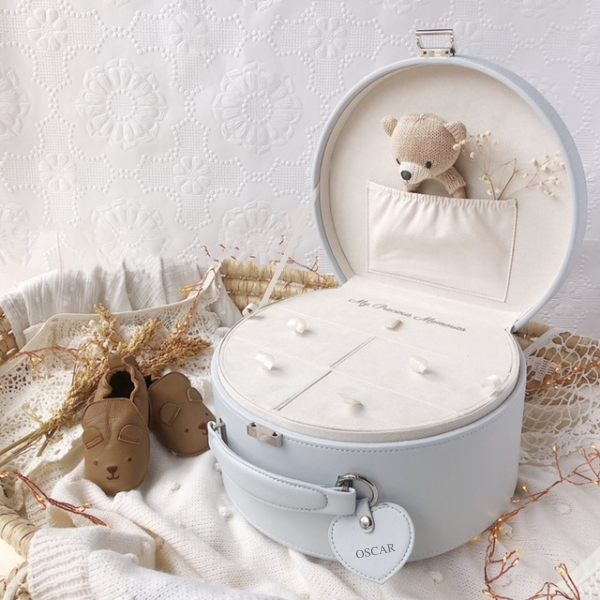
Tips for Helping Your Older Child Prepare for a New Sibling
The unexpected mourning
I still vividly remember saying goodbye to my 3-year-old son before my induction. The guilt of knowing his world was about to change and he was unaware, made it feel like the worst kind of betrayal. Being a first-time mother, guilt was a familiar feeling, but mourning was unexpected. I realise this sounds utterly ridiculous when you have a very healthy and alive child, but it was saying goodbye to a time when it was just 'three of us'. As I buckled him into his car seat in his fluffy gown and navy star slippers, the goodbye felt physically painful. This signifies all the contrasting feelings of motherhood. Those moments you imagined would be filled with pure elation are carved equally down the center of joy and sorrow. Preparing our first children for the arrival of their live-in 'best friend' requires some preparation and adjusting. Here are some ideas to help navigate this path:
Involve them in the preparation
Involving your older child in the preparation process can help them feel valued and part of the journey. Ask for their help with things like choosing a baby name, decorating the nursery, choosing baby clothes and toys, and helping to get the house ready. This not only helps build anticipation for the new arrival, but it also gives them a sense of responsibility and control.
Don't oversell it
At the end of the day 'change' is 'change'. It is important that your older child realises that it may take them ( and you) time to adjust to a new little person. You can reassure them that their feelings and hesitations are normal. You might want to prepare them for the reality that they will cry (a lot) and that they won't be able to do anything for themselves. This gives them a practical understanding of why so much of your time will be spent 'helping' the new baby.
The security of ritual
Creating a ritual prior to the birth of the baby and continuing afterward, is a great way to create 'security' for your older child. Setting aside an activity that you can do together at a set time gives them reassurance that there is still time for just the 2 of you.
Be prepared for the regression
I still remember my 3-year-old trying to emulate his 5-month-old sister by lying on his back jerkily kicking his legs and making baby noises. It was so obvious that he was trying to get the same kind of attention his sister was getting. It's a great opportunity to give them 'big boy or girl' jobs that re-enforce their abilities and comparative maturity.
Visitors beware
Smaller children between 2-4 can be particularly territorial and prone to jealousy. My Mum has recounted that as a 2-year-old I used to cover my sister in the clean washing to 'hide' her in a bid for attention! Having visitors over who are cooing and fussing over a new baby, can only make the situation worse. A quiet reminder to your visitors about acknowledging the sibling and how lucky the baby is to have him or her as a big brother or sister is a nice way to tackle this possible tantrum starter!
Make your big changes before
Nothing will inflame the situation more than big changes to 'accommodate' the baby when it is born. If you're planning on changing sleeping arrangements or transitioning from a cot, or enrolling in daycare, do it before the baby is born. It will only serve to reinforce feelings of rejection if your older child feels the baby is 'stealing' what is theirs.
Give them a special role
Assigning your older child a special role, such as “big brother” or “big sister” can help them feel important and needed. Let them help with things like feeding the baby, getting the nappies, and holding the baby. This not only helps them feel included, but it also helps them understand the responsibilities of caring for another person.
Read books together
Reading books about families with new babies can help your older child understand what to expect and answer any questions they may have. Great examples are There's a house inside my mummy, You were the first, Hello in there: A big sister's book of waiting, What Brother's do best/What Sisters do best
Allow them to express their feelings
It’s important to allow your older child to express their feelings and concerns about the new arrival. Listen to them and validate their feelings, no matter how positive or negative they may be. Encourage them to talk about what they’re feeling and offer reassurance that they will still be loved and cared for.
Mum guilt round two
Please don't be surprised at a second round of mourning once baby 2 has arrived. Your first child will suddenly feel very big, and you may find yourself feeling as though you missed out on their babyhood. Armed with experience and hindsight, you may find baby two an easier experience. Knowing how fleeting the newborn stage is, you may be able to enjoy or feel more present with your second. With the experience of no 1, you now know that even the hardest stage will come to an end! This is all totally normal, you are not alone in this Mama!
As with any big life change, preparing an older child as well as yourself for a sibling requires patience, understanding, and open communication. By involving your child in the preparation process, explaining what to expect, giving them a special role, reading books together, carving out 1-1 time, allowing them to express their feelings, and preparing them for changes, you can help make the transition to a sibling a positive and exciting experience for the whole family.



Leave a comment
This site is protected by hCaptcha and the hCaptcha Privacy Policy and Terms of Service apply.